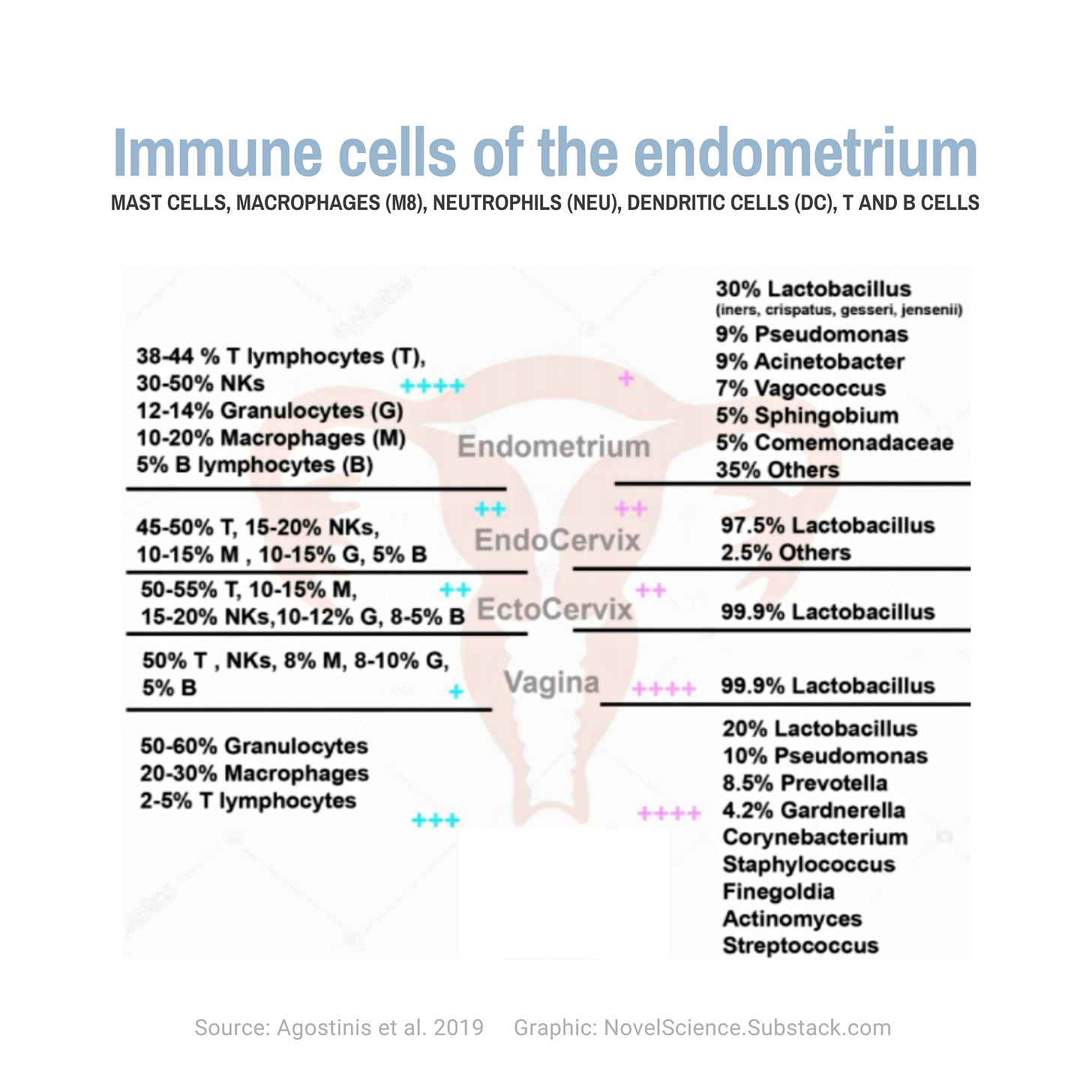No, vaccine-related changes to menstrual cycles don't prove that vaccines cause infertility. That's a conspiracy theory.
Could a vaccine affect your menstrual cycle?
Yes, there are plausible ways a vaccine could temporarily change your menstrual cycle. It may also be the case that hearing about the possibility is leading people to assume a change links to the vaccine when it does not. Critically, there is no reason to think that menstrual cycle changes relate to long-term fertility.
The endometrium plays a role in the immune system
The uterine lining, also known as the endometrium, has its own immune environment. Put another way, it's a part of the immune system. What do vaccines affect? The immune system. What affects the immune system could plausibly affect the endometrium.
COVID-19 infection itself can affect menstrual cycles, so it’s not surprising that building immunity against that same infection could too. Cycle changes, much like feeling achy, tired, or running a fever after a vaccine, may be a temporary response to the vaccine. Perceived stress is also on the list of things that can affect the cycle but it is not among the known causes of sterility.
The type of immune cells that are most numerous uterine lining varies depending on the phase in a cycle. These immune cells must balance fighting infection with permitting the occasional guest — I’m talking about sperm. This task involves creating ‘immune-privileged’ sites in the body where defense is less vigorous or off-limits.
This also means that if a virus does make it into a space that is immune privileged, it may be able to hide there indefinitely. For example, someone who contracted Ebola years earlier infected a sexual partner with a virus that sequencing showed was the same virus from the years earlier 2015 outbreak.
What cycle changes related to vaccines do not mean
Vaccines-related changes in the body like fever do not go on indefinitely. We don’t have a reason to suspect that cycle changes caused by the vaccine will affect fertility or be lasting any more than we suspect vaccine-related fevers to continue forever. In other words, our fears about infertility aren’t coming from a place of evidence; it’s coming from people making and sharing false claims.
Those claims spread wildly in November and December of 2020. Many of the claims were based on a lack of evidence, rather than positive proof. On the topic, a human immunology professor at Emory Matthew Woodruff stated:
This is not emerging science. These are well-established concepts among immunology experts. and have been for almost a half-century. As a result, it was not particularly noteworthy that a new preliminary study of women with fully developed immune responses against coronavirus showed no activity against the placental protein syncytin-1. Another study unsurprisingly demonstrated that the vaccine does not damage the placenta.
Reports from over 35,000 US women who received mRNA vaccines while pregnant show comparable rates of miscarriage, premature birth, and other complications compared to before the pandemic. These preliminary results reflect women who received either the Moderna or Pfizer mRNA shots while pregnant.
Their rates of miscarriage, premature births, and other complications were comparable to those observed in published reports on pregnant women before the pandemic.
Critically, we do know that pregnant women are more likely to fall seriously ill and we are seeing COVID-19 as a leading cause for maternal deaths in multiple countries.







